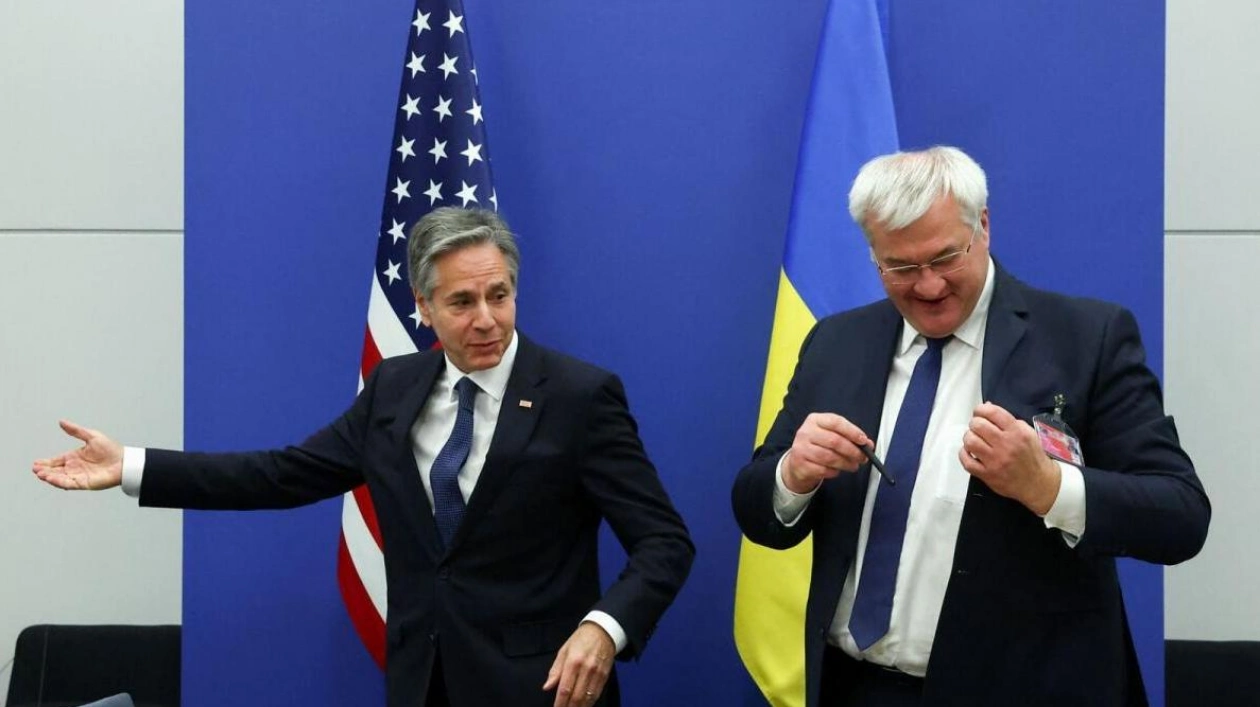US Secretary of State Antony Blinken and Ukrainian Foreign Minister Andrii Sybiha signed a memorandum of understanding during a NATO foreign ministers' meeting at the alliance's headquarters in Brussels, Belgium, on December 3, 2024. — Reuters
Antony Blinken, the French-speaking, Europhile top diplomat of the United States, made his final visit to NATO headquarters in Brussels on Tuesday, a bittersweet trip before Donald Trump's inauguration. The US Secretary of State can reflect on a tenure focused on strengthening Washington's transatlantic ties as Russia initiated the largest conflict in Europe since World War II with its invasion of Ukraine. Despite receiving a warm welcome from his NATO counterparts, the looming specter of Trump and his potential isolationist policies overshadowed the two-day meeting.
"You have been a steadfast ally and are greatly appreciated," NATO Secretary General Mark Rutte told Blinken. "We wish you well after January, but we need you until the 20th of January, every day, and we know we can rely on you." Blinken assured that the Biden administration would continue to supply arms to Ukraine in the limited time remaining.
"This is a crucial moment for the alliance to ensure we are prepared for the year ahead," Blinken stated. "Whether you like it or not, you have me and us until the 20th of January, every minute, every day." He also emphasized that being part of NATO is the "best safeguard against war" due to the alliance's commitment to protect each member, a potential warning to Trump who has suggested he might allow Russia to act freely if NATO allies do not increase defense spending.
The end of the Biden administration coincides with a critical time for Ukraine as its forces struggle against Russia's sustained offensive. Blinken, like his boss, has strongly supported Kyiv and announced a new $725-million military aid package before his NATO visit. Since Trump's election, the Biden administration has accelerated its support, aiming to strengthen Ukraine's position for potential negotiations with Russia. Trump has questioned continued US support and vowed to quickly negotiate an end to the war.
The Biden administration eventually authorized Ukraine to use American missiles to strike deeper into Russian territory and decided to supply anti-personnel mines. Blinken was often among the most proactive in advocating for more aggressive support for Ukraine, including permission to attack Russia and deliver tanks and F-16 jets, despite Pentagon reservations. However, as Trump prepares to take office, Blinken and the outgoing administration have limited influence.
Ukraine had hoped to persuade the United States to support its bid for NATO membership, something Biden has long opposed. Fearing Trump might revoke any offer, Washington refrained from making any moves. Trump claims he could end the war in a day but has not provided details. He has appointed retired General Keith Kellogg as his envoy on the conflict and Senator Mark Rubio to succeed Blinken. Kellogg suggested that the West might compromise on Ukraine's NATO aspirations as part of a peace plan. Many of Trump's "America First" policies clash with Blinken's worldview, which emphasizes outreach to allies, cooperation, and consensus-building.
Source link: https://www.khaleejtimes.com






